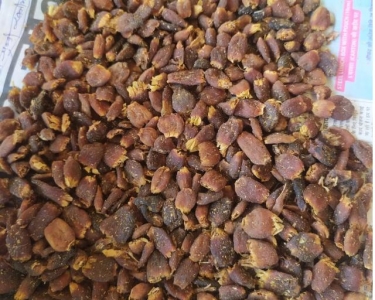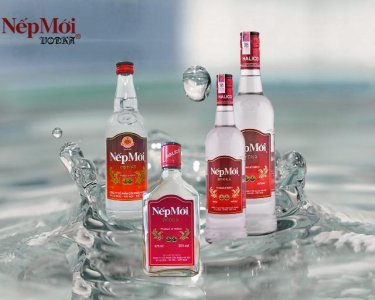Live animals
Couldn't find the product you want?
Fill out this form to request the product.
Products You May Like
Export from Sri Lanka
Sri Lanka became a plantation economy, famous for its production and export of food, cinnamon, rubber and Ceylon tea, which remains a trademark national export.
While the production and export of tea, rubber, coffee, sugar and other commodities remain important, industrialization has increased the importance of food processing, textiles, telecommunications and finance. The country's main economic sectors are tourism, tea export, clothing, rice production and other agricultural products. In addition to these economic sectors, overseas employment, especially in the Middle East, contributes substantially in foreign exchange.
India is Sri Lanka's largest trading partner. Sri Lanka's top exports are tea, non-knit women's suits, other women's undergarments, non-knit men's suits and knit women's suits. Others exports of Sri Lanka include spices, gems, coconut products, rubber and fish. Main export partners of Sri Lanka are United States, United Kingdom, Germany, Belgium and Italy.
Import to Sri Lanka
The Sri Lankan economy has seen robust annual growth at 6.4 percent over the course of 2003 to 2012, well above its regional peers.
The main economic sectors of the country are tourism, tea production, apparel, textile, rice production and other agricultural products. In addition to these economic sectors, overseas employment contributes highly in foreign exchange, 90% of expatriate Sri Lankans reside in the Middle East.
The agricultural sector of Sri Lanka produces mainly rice, coconut and grain, largely for domestic consumption and occasionally for export. The tea industry which has existed since 1867 is not usually regarded as part of the agricultural sector, which is mainly focused on export rather than domestic use in the country.
Sri Lanka's top imports are petroleum, planes, helicopters, spacecraft, cars, textile fabrics, foodstuffs, machinery and transportation equipment
Main import partners of Sri Lanka are India, China, Iran and Singapore, the United Arab Emirates and Oman.
Check Out Export Portal: A Site That Lets You Export Live Animals
If you are looking to buy and export animals, then you came to the right place! Export Portal's Live Animals Department is an online marketplace for sellers and buyers of any livestock. We work to contribute to the live export industry, which brings many economic advantages and other benefits to countries that rely heavily on livestock imports. In fact, in just Australia alone, this industry contributes roughly $1.8 billion to the country's GDP each year. Moreover, it also ensures food security while helping people meet their protein needs as well.
Finding the Right Animal
We feature a wide range of pigs, cows, sheep, goats, horses, rabbits and hares, turkeys, bees, and fish for sale. An increasing number of American, Australian, German, South African, Argentinian, and Italian farmers and companies are advertising their livestock with Export Portal, portraying just how effective and helpful our site is.
To help customers make more informed purchasing decisions, our site lets users narrow down their searches by the age, breed, and sex of the animal. If you are feeling hesitant to shop on our site and want more detailed information, make sure to check out our seller ratings and reviews, which are written by our buyers and customers. We also collaborate with hundreds of trusted international shipping companies that arrange the transport of all kinds of animals and birds to any country in the world.
Online Shopping is More Simple with Export Portal
Export Portal is an ideal site for everyone who is an avid online shopper. Our convenient options make it easy to find and buy whatever you are looking for. Our seller network from all over the world has everything you need, and our customer support team will make sure you can find it. Our wide assortment of products will be sure to provide you with the best shopping experience. Make sure to check out our site and items today!
Customs requirements of Sri Lanka
Sri Lanka Customs Contacts
Website: http://www.customs.gov.lk/
E-mail: dgc@customs.gov.lk
Address: No 40, Main Street, Colombo 11, Sri Lanka
Telephone: +94 11 2470945-8
Fax: +94 11 2446364
Sri Lanka is an island country situated in South Asia. It's nearest nearest neighbouring countries are India and the Maldives. Sri Lanka's geographic location and deep harbours made it of great strategic importance from the time of the ancient Silk Road through to World War II. The country is a member of the South Asian Association for Regional Cooperation, World Trade Organization and other international organizations.
Tariffs
Tariff based on the Harmonised System (HS). Most duties are ad valorem, assessed on the CIF value. Sri Lanka has a three-band import tariff schedule based on the harmonised system of classification: 5, 10 and 25% and an additional surcharge of 20% on import duty.
Importers will also have to pay add-ons and surcharges applicable for imported goods, such as Import Cess, Port and Aviation Levy (PAL), VAT and Nation Building Tax (NBT).
Passenger motor vehicles, alcoholic beverages, tobacco, carpets, perfume and other luxury items are subject to rates as high as 200%.
Import tariffs are waived for export-oriented companies, IT related projects and special infrastructure projects approved by the Board of Investment. Other imports exempt from duty are:
- textiles, yarn and other intermediate goods for the garment export industry
- gold
- gems
- computers and software
- telecommunications equipment
- sports equipment
- medical and dental equipment
- agricultural seeds
- machinery for use in the agricultural and fisheries industries
India and Sri Lanka signed a tariff agreement recently under which Sri Lanka will have duty free access to 1000 items within three years and India will be able to export 800 items to Sri Lanka within eight years.
Non-tariff barriers
The Sri Lanka Government has liberalised import and export procedures. Import licenses are required for only a few specified items due to health and security reasons. These products include:
- firearms and ammunition
- drugs and pharmaceutical products
- precious metals
- alcohol
- toxic and hazardous chemicals
- pesticides
- meats
- fresh produce
The import of illegal drugs is strictly prohibited. There are no export controls on most items other than coral and shells, wood and wood-based articles, ivory and antiques, which have been imposed for environmental protection and the preservation of antiques.
Sri Lanka bans genetically modified (GM) foods including products using GM ingredients. Licenses and valid certification from the exporting country’s health authorities clearing the product of any GM ingredients are required for import items such as:
- soya-based products
- maize/corn
- tomato and tomato-based products
- potato and potato products
- bakers’ and brewers’ yeast
- cheese and micro-biological starter cultures
Product certification, labelling and packaging
Labelling and marking
Packing should be strong and guard against extreme heat in summer, humidity in winter and possible storage in the open. Steel strapping is recommended.
Outer containers should bear the consignee's and port mark and should be numbered according to the packing list, unless their contents can be otherwise readily identified.
An indelible marking of origin (e.g. Made in China) must appear on all goods and their immediate containers.
Edible fats, oils, milk and other dairy products are subject to special marking regulations.
Infant milk foods must state in Sinhala, Tamil and English: 'Breast milk substitute' and 'Doctors recommend that breast feeding is better'.
Containers of liquids must be marked in the metric equivalent of imperial gallons.
Dimensions of piece goods must be conspicuously stamped/marked in the metric equivalent of standard yards and fractions of yards.
English language is accepted for labelling of consumer goods, but local languages are essential on any products aimed at the mass market.
Special certificates
Livestock require certificates of health issued by the approved authority in the country of origin.
Meat and meat products require sanitary certificates issued by the approved authority in the country of origin.
Plants require phytosanitary certificates.
Used clothing, raw cotton and cottonseed must have certificates of fumigation.
Second-hand equipment must be accompanied by a certificate of valuation.
Documentary requirements
Commercial invoice
No prescribed form and two copies are required. The invoice must indicate:
- country of origin
- brand marks, e.g. make, model
- positive reference by order number or correspondence with supplier
- whether the price is cost, insurance and freight (CIF) or free on board (FOB) (Incoterms 1990)
- freight and insurance values
- type and amount of discount given
- packaging details indicating dimensions and weights, unless provided for in a separate packing list
- full description of goods, including the HS number
Specific details are required for certain goods, including:
- fabrics - fibre composition and proportion by weight, construction (woven or knitted), finishes given (plain, coated, dyed or printed), the unit of quantity and the width of the piece
- synthetic fibres: continuous or discontinuous
- motor vehicles: new, used or reconditioned
- chemicals: name, element and grade
Bill of lading/airway bill
To Order bills acceptable. Clean bill of lading showing gross weight of each package.
Packing list
Two copies, if requested.
Public health requirements
Livestock require special import permits issued by the Chief Government Veterinary Surgeon of Sri Lanka. Special import permits must be obtained from the Director of Agriculture.
Edible fats, oils, milk and dairy products and the use of preservatives, colours and artificial sweeteners in foodstuffs are subject to specific regulations.
Drugs and pharmaceuticals are subject to strict controls.
Sources:
http://www.customs.gov.lk/importexport.html
http://magazine.lankahelp.com/2012/04/04/how-to-import-goods-to-sri-lanka/
http://www.srilankabusiness.com/pdf/export-procedure-21-10-2014.pdf





